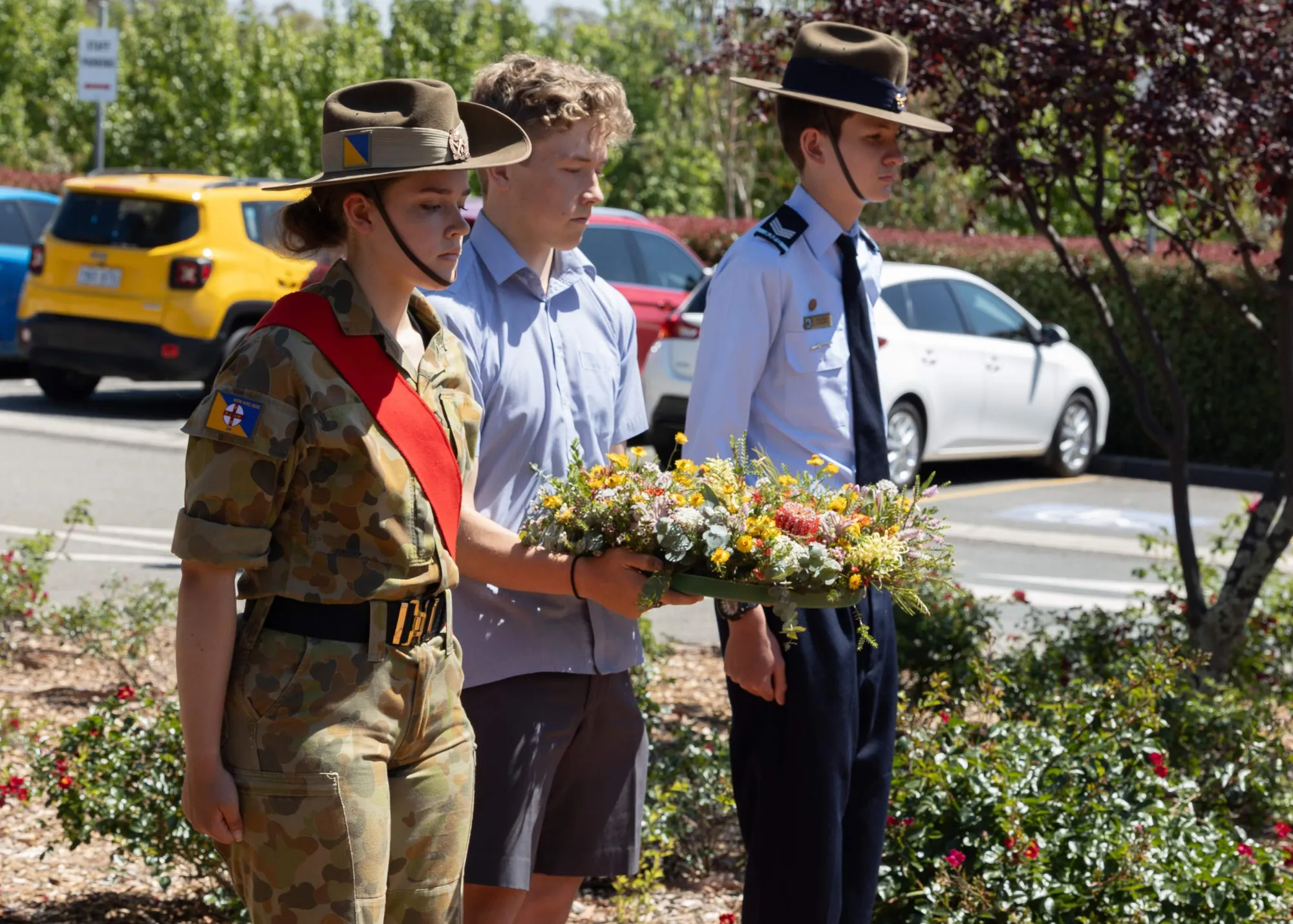Lest We Forget
Lest We Forget
By Mrs Louise Wallace-Richards, Assistant Principal Teaching and Learning
Last Friday at 11 am, Radford College Secondary School students commemorated Remembrance Day. In classes, they learned about the significance of the day and recited the Ode, the fourth stanza of the poem, For the Fallen, by English poet Laurence Binyon:
They shall grow not old, as we that are left grow old:
Age shall not weary them, nor the years condemn.
At the going down of the sun and in the morning
We will remember them.
The poem gently reminds us of the sacrifices of those who fought and died in conflict, concluding with the words: “Lest we forget.” This phrase translates to “it should not be forgotten,” emphasising the importance of remembering, with a hint of concern that we might forget.

The First World War ended 105 years ago last Saturday. Since 11 November, 1918, many more lives have been lost in conflicts and the futility of war and written about by many poets, most notably Wilfred Owen, another WWI English poet.
Futility
By Wilfred Owen, 1918
Move him into the sun—
Gently its touch awoke him once,
At home, whispering of fields half-sown.
Always it woke him, even in France,
Until this morning and this snow.
If anything might rouse him now
The kind old sun will know.
Think how it wakes the seeds—
Woke once the clays of a cold star.
Are limbs, so dear-achieved, are sides
Full-nerved, still warm, too hard to stir?
Was it for this the clay grew tall?
—O what made fatuous sunbeams toil
To break earth's sleep at all?
Owen, a pacifist, joined the war to experience its horrors firsthand. Tragically, he lost his life shortly before WWI ended. Owen writes much more critically about war and the loss of life than Binyon. He poses thought-provoking questions in his poems, reflecting his confusion about the fate of his comrades and his despair at the existence of humanity if all we do is harm one another - "O what made fatuous sunbeams toil...To break earth's sleep at all?"
Poetry was a means for people on the home front to grasp the realities of WWI. As time progressed, photography and news reels also served this purpose. In the 1960s and 1970s, television brought the horrors of the Vietnam War into Australian households. More recently, we and our children have witnessed the suffering caused by wars in Ukraine and Gaza and Israel through television and social media platforms.
So, when we commemorated Remembrance Day at Radford last Friday, we remembered all of those who have died and suffered through conflicts, both military and civilian. We also reflected upon those currently facing suffering and recognised the value of human life, acknowledging the sacrifices made to safeguard our freedom. Lest we forget.
Our Year 10 students attended the service with Cadets Isobel Higgins and Isaac Walker leading the flag lowering at the start of the ceremony and then raising the flag during the Reveille. Mr Kevin Knapp kindly played The Last Post and the Reveille and Sofia O’Brien read the Ode. 2024 House Vice-Captains were in attendance and also assisted with other duties during the ceremony.
